Taylor Ralph ’17 is a project manager with SSG Advisors, leading engagement with multi-national food and beverage corporation investigating opportunities for partnership within its agricultural supply chain across emerging markets, with focus on small-holder farmers in Latin America, North Africa, and South Asia. She was interviewed by Isabel Russell, an undergraduate at UVM

What have you been up to since graduation?
I’ve had the privilege of working with SSG Advisors (based right here in Burlington), an international development firm that seeks to harness the power of partnerships to achieve sustainability objectives. I’ve been project managing on a small team working closely with PepsiCo’s Sustainable Agriculture team who is eager to build partnership muscle across their procurement and sourcing departments. At it’s root, PepsiCo is an agricultural company, procuring fruit, vegetable, dairy, and commodity crops across over 40 countries and from a variety of farmers (from large commercial operations to small-holder farmers in emerging markets), as you might imagine this opens up PepsiCo to a variety of challenges and risks — and of course, opportunities. Our team has been developing a Partnership Playbook to help the organization engage the necessary stakeholders to address these challenges and ultimately achieve their Performance with Purpose goals around sustainable sourcing; necessary stakeholders might include anyone from bi-laterals to development banks to impact investors to research organizations to foundations to NGOs to civil society organizations and of course, the producers themselves. We are also going into the field to develop three specific partnership concepts around sustainable agronomic practices in emerging market contexts.
Why did you choose to attend this MBA program?
I was looking for a program that aligned with my values: that business can and should be used as a force for positive change. I also knew that I needed to learn the language of business to have the impact I wanted to have in the world.
What was your favorite part about the experience?
The collaborative nature of the work environment, by far. Learning to work with diverse personalities was enriching and also helped prepare me for the work I seek to do going forward: create a common language among diverse actors to achieve sustainability objectives.
How are you applying the tools/skills you learned in the program, post-MBA?
My practicum involved working with a large multi-national corporation to develop business strategies that address the needs of emerging market actors. I was able to dig into a specific value chain (small-holder farmers producing fresh vegetables from farm to retail in São Paulo, Brasil) and explore ways that a large, matrixed refrigeration corporation could provide cold-chain solutions and prevent food waste in that context. At PepsiCo, I am engaging in similar market research and working to investigate how a large group with seemingly disparate objectives might align with other actors in the value chain to achieve development goals. In my experience, it’s been about creating that common language, and SEMBA helped me learn how to translate.
What would you tell someone who is considering the Sustainable Innovation MBA?
What SEMBA lacks in scale of alumni network, they make up for in richness of connection. If you’re looking to challenge your assumptions about the way the world works, this is the program for you. Also – I’m happy to speak more with anyone interested in learning more.
 Lesser known is the history of that time when, although many moved to Vermont to find and build a different way to live, a number also were inspired to find and build a different way to do business. Some of Vermont’s most iconic brands — like Ben & Jerry’s and Burton Snowboards — were born out of this spirit, and have set the standard for an approach to business that emphasizes multiple bottom lines.
Lesser known is the history of that time when, although many moved to Vermont to find and build a different way to live, a number also were inspired to find and build a different way to do business. Some of Vermont’s most iconic brands — like Ben & Jerry’s and Burton Snowboards — were born out of this spirit, and have set the standard for an approach to business that emphasizes multiple bottom lines.
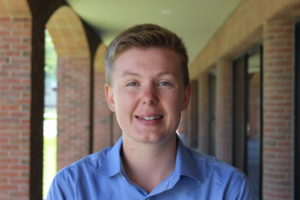 Making a whole new life for myself! I launched my own consulting practice, Third Peak Solutions, and spent much of the fall working from the road while my partner and I traveled around the west (Washington, Oregon, Montana, Wyoming, Colorado and New Mexico) figuring out a new place to call home. In November my partner landed a position at a very cool organization called Adventure Scientists and just after Thanksgiving we moved to Bozeman, Montana. After spending 30 years living in the Northeast, moving to big sky country is a pretty big life change. It’s somewhat terrifying, but mostly thrilling. Now that I’m settling into my new home, I’m focused on defining exactly what Third Peak Solutions does: organizational development consulting with conservation non-profits? Sustainable strategy consulting with for-profits? A little bit of both?
Making a whole new life for myself! I launched my own consulting practice, Third Peak Solutions, and spent much of the fall working from the road while my partner and I traveled around the west (Washington, Oregon, Montana, Wyoming, Colorado and New Mexico) figuring out a new place to call home. In November my partner landed a position at a very cool organization called Adventure Scientists and just after Thanksgiving we moved to Bozeman, Montana. After spending 30 years living in the Northeast, moving to big sky country is a pretty big life change. It’s somewhat terrifying, but mostly thrilling. Now that I’m settling into my new home, I’m focused on defining exactly what Third Peak Solutions does: organizational development consulting with conservation non-profits? Sustainable strategy consulting with for-profits? A little bit of both?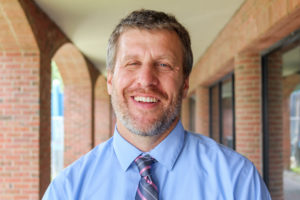 It’s a fantastic opportunity for those seeking to pivot mid-career. Prior to The Sustainable Innovation MBA, I worked in agriculture and non-profits and I had reached a point where opportunities for learning and advancement had flattened out. As a working parent of two young girls, the thought of being in graduate school for years on was overwhelming. The one-year curriculum is perfect for those looking to re-launch their careers quickly.
It’s a fantastic opportunity for those seeking to pivot mid-career. Prior to The Sustainable Innovation MBA, I worked in agriculture and non-profits and I had reached a point where opportunities for learning and advancement had flattened out. As a working parent of two young girls, the thought of being in graduate school for years on was overwhelming. The one-year curriculum is perfect for those looking to re-launch their careers quickly.
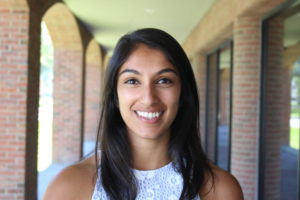
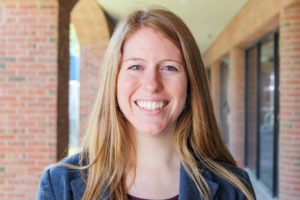
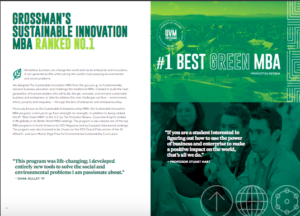
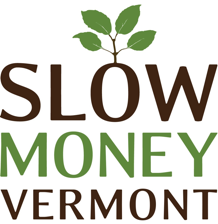 On December 6, Slow Money Vermont hosted its 3rd annual Entrepreneurial Showcase at the Main Street Landing Performing Art Center in Burlington. Together with the Moulton Law Group, Milk Money, Flexible Capital Fund, City Market, and other sponsors, the program brought together entrepreneurs and investors with a shared vision for local, sustainable food and farms. Slow Money Vermont “catalyzes new investment opportunities in the people, businesses and community that contribute to a sustainable food economy.” A project of the Farm to Plate Network, Slow Money Vermont is part of a national movement headquartered in Boulder, Colorado.
On December 6, Slow Money Vermont hosted its 3rd annual Entrepreneurial Showcase at the Main Street Landing Performing Art Center in Burlington. Together with the Moulton Law Group, Milk Money, Flexible Capital Fund, City Market, and other sponsors, the program brought together entrepreneurs and investors with a shared vision for local, sustainable food and farms. Slow Money Vermont “catalyzes new investment opportunities in the people, businesses and community that contribute to a sustainable food economy.” A project of the Farm to Plate Network, Slow Money Vermont is part of a national movement headquartered in Boulder, Colorado.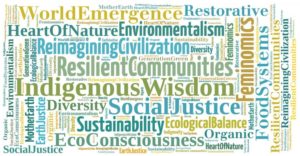 One of the key points many of the speakers made throughout the weekend was on mindset. Changing mindsets about the current globalized economy is the first step towards changing the system as a whole. One of the ways speakers encouraged a change in mindset was to recognize that in our current system we commodify all aspects of our life. Indigenous Leader
One of the key points many of the speakers made throughout the weekend was on mindset. Changing mindsets about the current globalized economy is the first step towards changing the system as a whole. One of the ways speakers encouraged a change in mindset was to recognize that in our current system we commodify all aspects of our life. Indigenous Leader 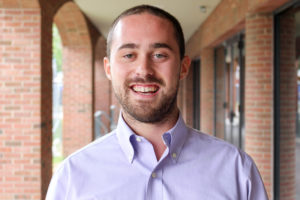 What has been your favorite part/element of the program thus far?
What has been your favorite part/element of the program thus far?